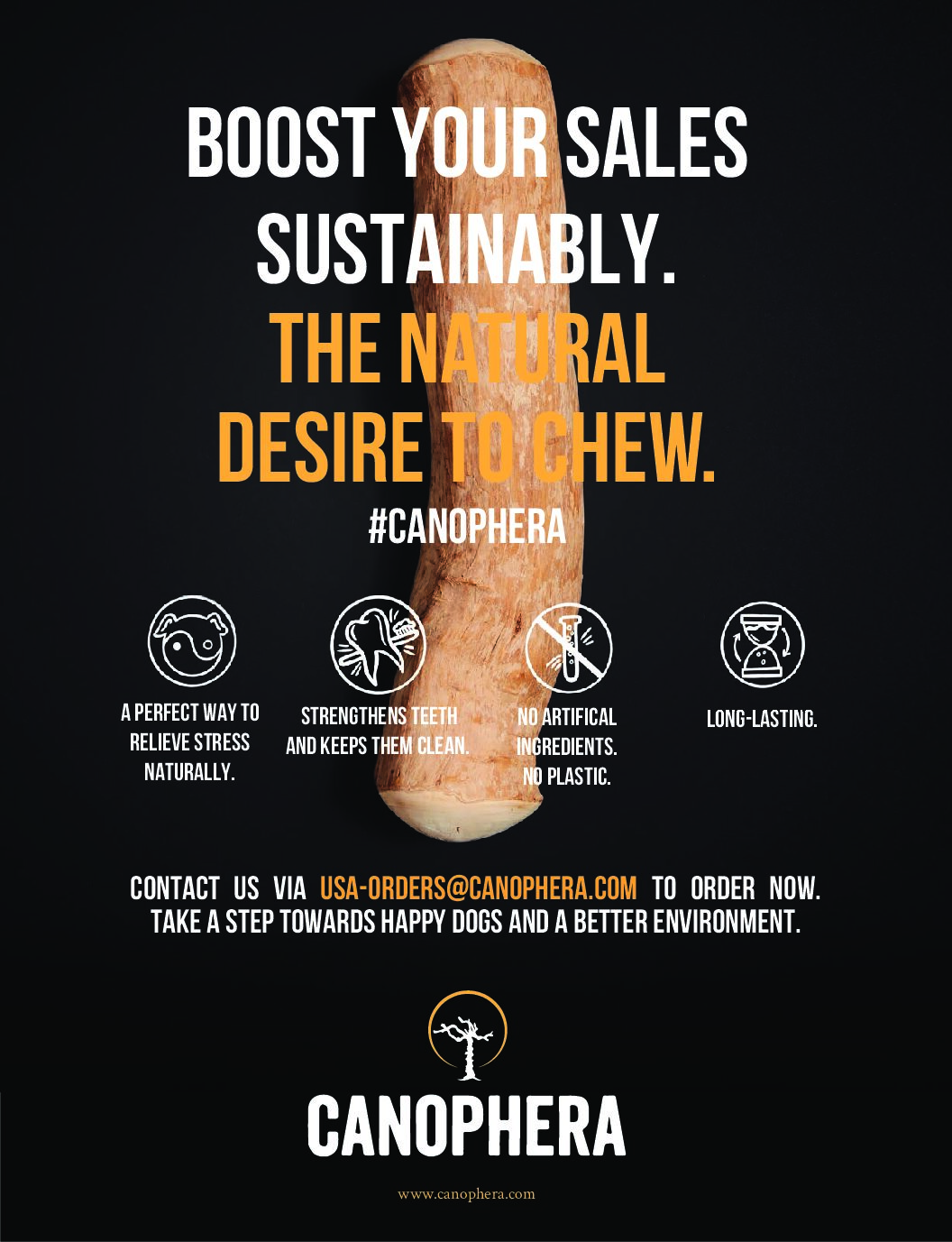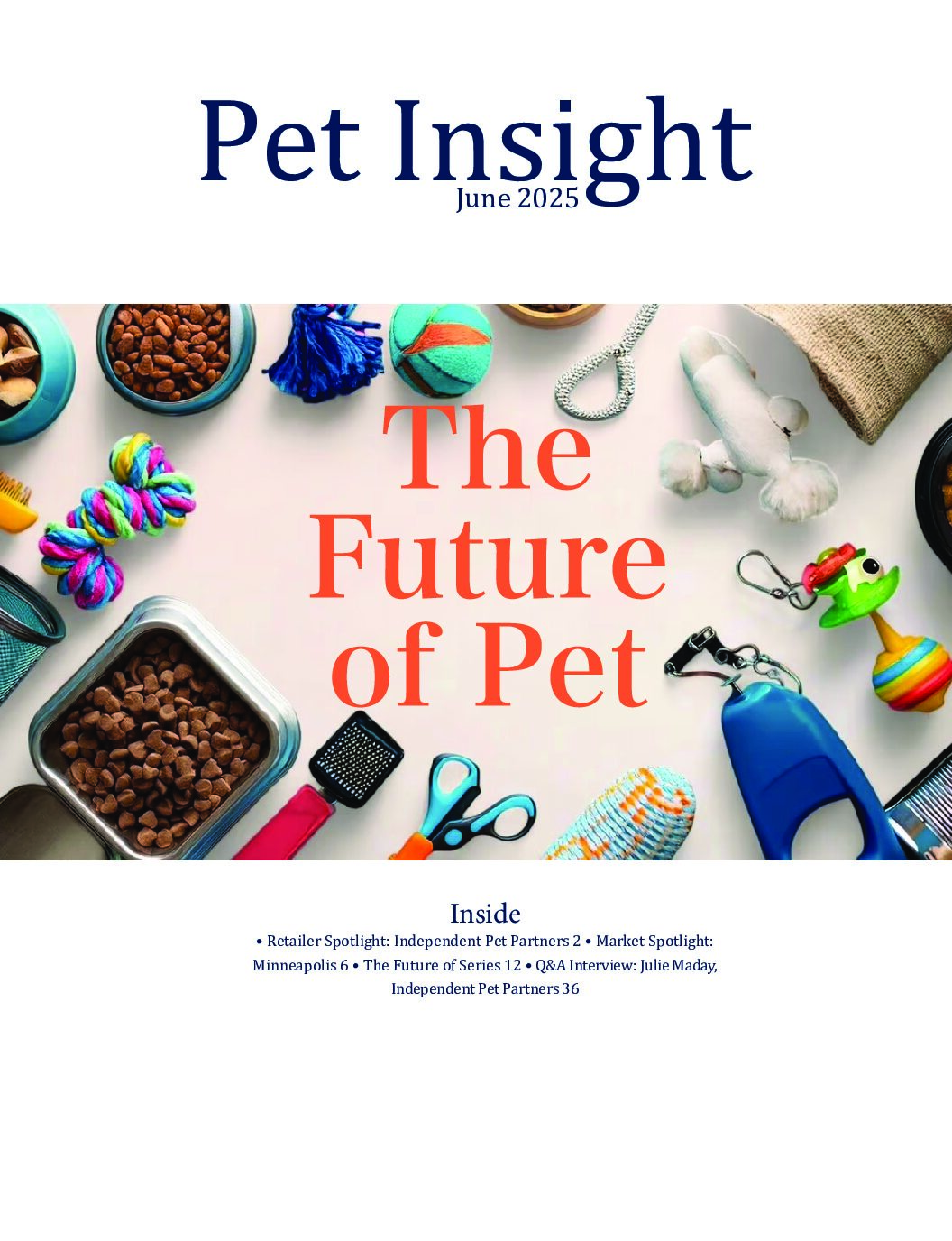The Future of Oral Care
As costs mount for consumers—seemingly from every direction—pet oral care manufacturers continue to remind pet parents that Founding Father Ben Franklin was truly onto something when he said: “An ounce of prevention is worth a pound of cure.” A better understanding of periodontal disease and its connection to long-term overall health has prompted leading companies to find ways to help pet parents keep a regular oral care regimen for their pets. As regular brushing remains an unpleasant task for both pets and pet parents, these category leaders are innovating solutions that will not only keep teeth clean, but save pet parents money, headaches and potential heartaches in the long run.
ChewMate, award-winning maker of oral care chew toys designed specifically for cleaning teeth and gums, was founded by Dr. Allan Coopersmith and Nathalie Fiset, who both work in human oral care. The company is growing in distribution and celebrated entering Chewy’s system this year.
“Pet oral care has really started to become more important in the pet parent world,” said Ian Miller, ChewMate Chief Revenue Officer. “There is an 80 percent chance that by the time a pet is 2 years old they start to develop some kind of periodontal disease, and so people are more and more aware of that and of oral systemic link that pets have. It’s the same as humans. If they start to have that periodontal disease, there is a great chance that it develops into some kind of systemic disease affecting their hearts, their kidneys or their liver.”
This link presents a challenge and opportunity for companies who continue to shout about the importance of taking care of pets’ teeth. Traditional teeth brushing does not appeal to pet parents, and they’re looking for better ways, said Melissa Gulbranson, President of Oxyfresh. “Toothpaste regimen is declining among consumers, and they are looking for faster solutions that better work into their busy daily lives,” she said. “We are seeing overall consumer growth in the pet dental market has continued to grow with pet dental kits growing 29.84 percent the last 180 days and dog teeth cleaning toys growing at 19.13 percent.”
To align with those trends, Oxyfresh added its Premium Pet Dental Kit, which includes the Pet Dental Water Additive, Pet Dental Gel Toothpaste and several finger brushes and a Natural Rubber Dog Dental Toy with special ridges and grooves to its growing lineup.
TEEF has similarly seen a spike in growth with the strongest Q1 since it launched in 2020, according to Lindsey Campbell, CCO for Primal Health, makers of the TEEF brand. “In February, we launched a new product line: our lickable dental treat powders are protein-based and a tastier and more convenient way for pet parents to provide daily dental care for their pets. The demand for supplements continues to increase with 85 percent of pet parents consider proper nutrition and supplements as important for their pets as they are for themselves.”
Non-invasive but effective grooming solutions have elevated Pet King Brands’ Oratene Enzymatic Brushless Oral Care as a top brand for pet parents. “At Pet King Brands, we use only natural, enzyme-based formulas to provide therapeutic relief from common pet ailments,” said Deb Decker, Director of Marketing. “Our LP3 and MD2 Enzyme Systems set us apart by targeting the root causes of infections, reducing the frequency of chronic issues and providing lasting relief all while offering preventative protection for long-term health. The enzymes in ZYMOX products are derived from natural dairy sources, ensuring that pets receive a chemical-free, gentle experience without harmful side effects.”
Since its products are Made in the US, Oxyfresh has largely avoided the fall out from the current instability of global trade and isn’t looking to raise prices. “We are unique in that we export our products across the world, as our products are Made in the US,” Gulbranson said. “Several of our international partners are concerned about tariffs, and we’ve been actively working with our partners to support them.”
ChewMate is not as immune to the tariff fluctuations, but Miller insists the economic uncertainty isn’t anything he hasn’t seen, and he is confident the company can ride it out. “It’s not the easiest thing to do—planning any of our purchases right now because we don’t know whether or not there will be huge tariffs, small tariffs, no tariffs, reverse tariffs,” he said. “We certainly have looked at the possibility of making our product domestically.”
Miller points out domestic consumers have also demonstrated they aren’t necessarily willing to pay more for an item made domestically. “I feel that it’s important for us to open our eyes to domestic possibilities, but the funny thing is that the average consumer will not pay more for a domestic product than an imported product,” he said. “If the domestic supply means that somebody is going to have to pay $30 instead of $20, they’re not interested. If it means that we can purchase it domestically, great, we will do that. But right now, it’s still less expensive to import. So, we’re keeping an even keel on that, but we’re keeping an eye on what the tariff situations are because if they change, we have identified some American makers for some of our products. Not all of our products are able to be made in the United States. We want to give our consumers the best possible value for the product. And if that means import it, great. If it means domestic, even better.”
But there are still ways to mitigate the increased price tag as a manufacturer who won’t pass cost increases on to consumers, according to Campbell with TEEF. “Consumers are likely to seek high-quality, affordable pet care options,” Campbell said. “Offering cost-effective yet premium products, subscription services or bundled packages can meet this need while building customer loyalty. With rising awareness of health and wellness, there’s an opportunity to expand the adoption of premium and preventive health products that promote long-term pet health,” she said.
The upshot for oral care manufacturers is that regardless of economic factors outside of their immediate control, they will continue emphasizing the importance of preventative care, to avoid costly systemic health issues later in an animal’s life.


